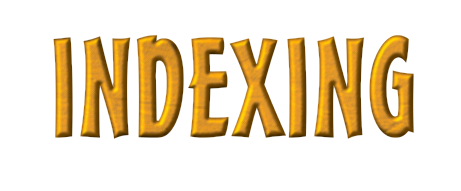Unity of Curriculum Development Process and Teaching Materials in Islamic Religious Education Subjects
Abstract
This article raises three issues, namely the process of curriculum development in PAI subjects at SDN 25 Limboto, the process of developing teaching materials in PAI subjects at SDN 25 Limboto and the unity of the curriculum development process and teaching materials in PAI subjects. The type of research used is qualitative research. The results showed that the development of curriculum unity and teaching materials is one of the efforts to improve the quality of education in SDN. 25 Limboto, which is done by implementing the 2013 curriculum. The advantage of this curriculum is that teachers can freely choose and determine teaching materials that will be delivered to their students or developed by teachers themselves according to their respective creativity. The development carried out in accordance with the 2013 Curriculum is: Teachers are really responsible for making Learning Implementation Plans (RPP), teachers identify competency standards and basic competencies and teachers.
References
Abdul, M., Kholil, L. R., Abdullah, I., Dewi, M., & Hanna, H. (2020). Development of islamic education (PAI) curriculum based on anti-corruption fiqh. International Journal of Psychosocial Rehabilitation, 24(3), 2434-2446.
Apriana, D., Kristiawan, M., & Wardiah, D. (2019). Headmaster’s competency in preparing vocational school students for entrepreneurship. International Journal of Scientific & Technology Research, 8(8), 1316-1330.
Falabella, A. (2020). The ethics of competition: accountability policy enactment in Chilean schools’ everyday life. Journal of Education Policy, 35(1), 23-45.
Hartini, S., Bhakti, C. P., Kurniawan, S. J., & Fitri, P. N. (2021, March). Online Teacher Training Design Based on Learning Management System For TPACK. In BICED 2020: Proceedings of the 2nd EAI Bukittinggi International Conference on Education, BICED 2020, 14 September, 2020, Bukititinggi, West Sumatera, Indonesia (p. 50). European Alliance for Innovation.
Padang, S. R., & Sartika, S. D. (2023). Integration Of Character Education In Civility Education Learning To Build The Character Of Elementary School Students. International Journal Of Students Education, 2(1), 309-313.
Puspitarini, Y. D., & Hanif, M. (2019). Using Learning Media to Increase Learning Motivation in Elementary School. Anatolian Journal of Education, 4(2), 53-60.
Reimers, F. M., & Chung, C. K. (Eds.). (2019). Teaching and learning for the twenty-first century: Educational goals, policies, and curricula from six nations. Harvard Education Press.
Setiawan, B., & Suwandi, E. (2022). The Development of Indonesia National Curriculum and Its Changes: The Integrated Science Curriculum Development in Indonesia. Journal of Innovation in Educational and Cultural Research, 3(4), 528-535.
Sugiyono. (2018). Metode Penelitian Kuantitatif, Kualitatif dan R&D. Alfabeta.
Suwartono, T., Herawati, I., & Suweni, D. (2022). Creative and Innovative Language Teaching. Tarling: Journal of Language Education, 6(1), 1-19.
Copyright (c) 2023 Journal La Edusci

This work is licensed under a Creative Commons Attribution-ShareAlike 4.0 International License.









